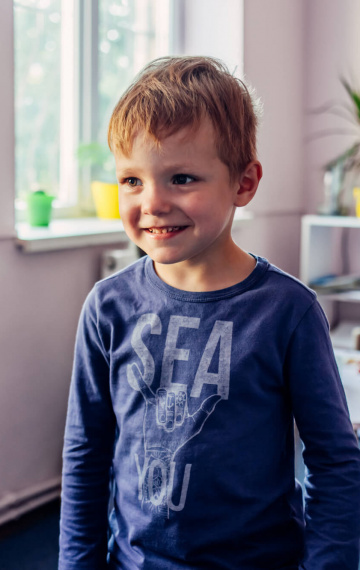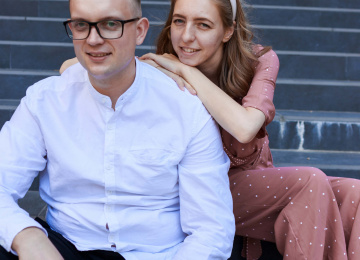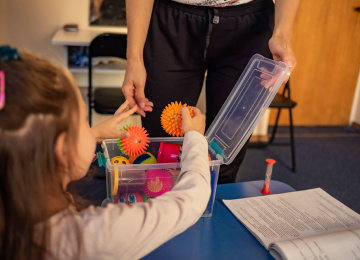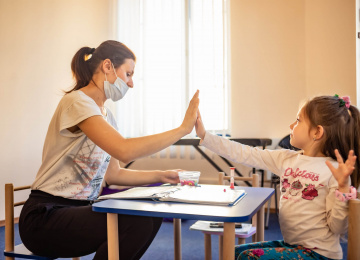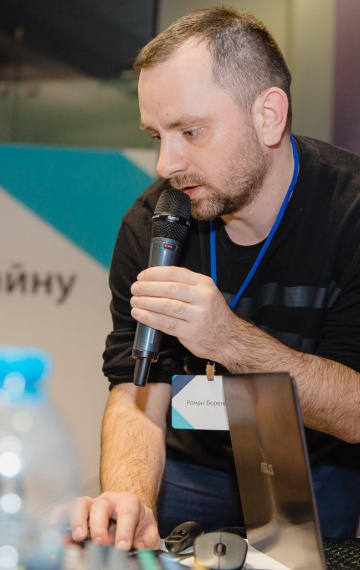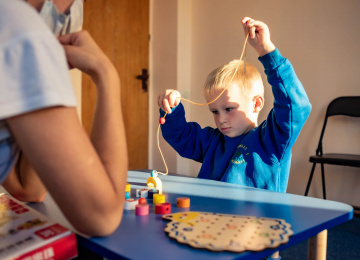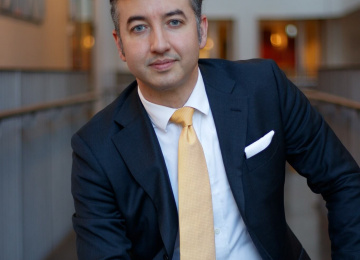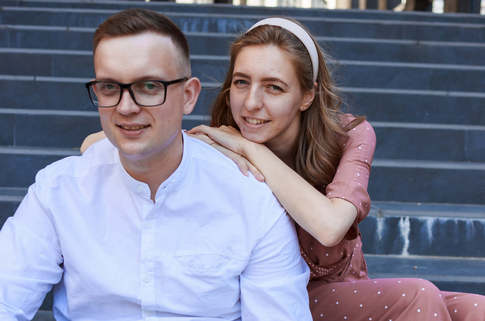
Two years, and two massive crises.
Ukrainian business has taken some major hits in the last couple of years: First was the COVID-19 pandemic, which forced many entrepreneurs to go online at a short notice. Next came a full-scale invasion and war by Russia in Ukraine. Many businesses had to close down once again, without knowing when, or if, they would be able to reopen again.
But reopening they are – even amid the continuing war.
And help for them is coming from the European Union and the German government, via the German federal company Deutsche Gesellschaft für Internationale Zusammenarbeit (GIZ) GmbH, which launched the COVID-19 Business Clinics as part of the “EU4Business: SME Competitiveness and Internationalisation” programme.
The programme, co-financed by the EU and Germany, aims to create better conditions for small- and medium-sized Ukrainian enterprises by supporting innovations and stimulating exports – paving the way to sustainable and uniform economic growth.
Children’s Time and Inclusive IT are among the companies that received support from the Business Clinic in Lviv, and that now aim to expand and reach more customers. But that’s not the only thing they have in common. The owners of both companies are driven by another important goal: to help those in need.
Speech therapist from Lviv expands business with EU support
Ivan Pasichnyk, a teacher and a speech therapy specialist, has always been driven by the urge to help people around him. It encouraged him to obtain a full education in his field, and finally, over five years ago, he started the Children’s Time speech therapy center in Lviv.
Pasichnyk started the company with five doctor’s rooms and five employees, including himself and his wife Oksana Pasichnyk. But just as the business started to take off, the two major crises of the decade hit the world – first the Covid-19 pandemic, and then Russia’s full-scale war invasion in Ukraine.
When the country went into lockdown due to the virus, Pasichnyk had to halve the number of his employees. He quickly adapted to the new reality, transferring to remote work, and found clients abroad as far away as Canada and the United States. But the company still didn’t have a strategy or a work plan for moving forward amid the crisis.
“I knew how to teach children, but I didn’t know how to do business,” Pasichnyk says.
Luckily, he was able to get advice from the specialists of the COVID-19 Business Clinic in Lviv. Through the Quick Business Help service, Pasichnyk got a 30-minute individual business consultation with expert advice on communications, brand strategy, and grant opportunities.
He came to the Business Clinic with a burning question in mind – “How do I become a brand?”
“I knew that with more practice, you become better at what you do, but I didn’t know how to tell people about myself, my company, and my work,” Pasichnyk says, noting that he struggled to convince parents to trust his company with their children.
After consultations in the Business Clinic and help from international consulting company CIVITTA within the EU4Business programme, Pasichnyk learned how to optimise his online presence for Google searches, make the proper settings for his online advertising, work on various communication channels, and understand the importance of live feedback.
“Now I have new ideas about how to improve my company step-by-step,” he says.
Before getting support from the Business Clinic, the company sold 15-25 subscriptions per month. After it, the number went up to 35-40. The number of one-time consultations also increased, and the center launched a training course for children, parents, and specialists. Children’s Time also saw a rise in clients discovering the business through social media or advertising.
But just as the company took on a new lease of life, Russia launched its full-scale invasion of Ukraine. Children’s Time closed down but managed to reopen after a month, as Lviv was less hit by Russian invasion forces. Speech disorders in children were already a burning issue in Ukraine, and the war has only exacerbated the problem. Pasichnyk says there are still a lot of children throughout the country in need of their help – some with serious medical issues that cannot be treated in wartime.
So reopening is just the start for Pasichnyk and his team. Next, they plan to conduct webinars and training sessions for the relatives of children with speech disorders to teach them all of the skills they need. In the future, the company plans to motivate more people to go into speech therapy and be able to open a second office in Lviv. After that, they plan to continue working remotely, at least part of the time, as this has opened up a new pool of opportunities for treating children in other regions of Ukraine, or even overseas.
As for Pasichnyk himself, he wants to train young speech therapists who have missed out on hands-on experience due to the COVID-19 pandemic and the war.
An inclusive IT company increases its client pool with EU support
For as long as he can remember, Roman Boreńko has been fascinated by information technology. Added to that, he always wanted to work in an inclusive environment. These in combination led him to gather a team of specialists with limited physical capabilities, including blind people, wheelchair users, and mild mental disorders. The result was Inclusive IT, an outsourcing company engaged in testing already running sites and sites under development.
With four of the company’s co-founders leading the way, the company checks how accessible websites are to people with a range of disabilities. The company says that only people with disabilities can provide useful insights about accessibility – no automated or regular tester can match them.
“We started remotely, from scratch, and now employ nine people both in Ukraine and in foreign countries, including in Poland,” says Boreńko.
But being a remote company did not shield the company from the effects of the COVID-19 pandemic. In fact, the business had to reduce the number of its employees from 10 to 4. The founders now had a choice to make: to try to ride out the pandemic and hope for the best or take an action.
They chose the latter.
Boreńko and the others applied to the COVID-19 Business Clinic in Lviv for emergency business help and business consultation from specialized experts.
“It helped me verify our practices, (find out) what we do best, and what our priorities are,” Boreńko said. “It was a view coming from outside the company.”
The initiative pushed him to set up the sales system and see the value of participating in offline events. Boreńko now regards both as vital, as the first brings clarity to business processes and internal communications, while the second brings more customers.
After Inclusive IT got support from the Business Clinic, it immediately began to move forward, winning a big tender in Ukraine. But as the company was on the verge of signing the contract, Russia invaded Ukraine, and a full-scale war started in the country.
Still, when it comes to the future, the company has big plans. Shifting its focus to exports, it wants to move part of its operations to Poland and start selling its services to banks.
“And we have a company in California that is ready to cooperate with us,” says Boreńko.
“But it’s not easy for us. First, we need to make improvements, automate our processes, build our team, and so on.”
“The war put the brakes on a lot of processes, and clients are only just slowly coming back.”

